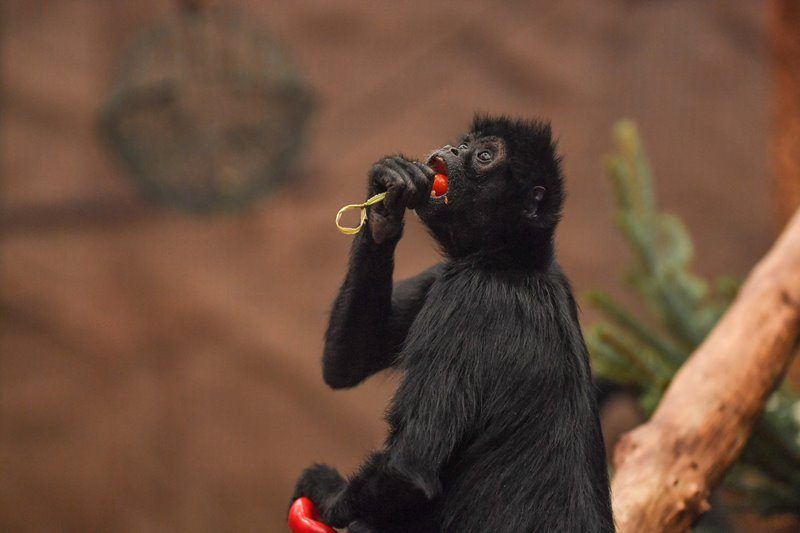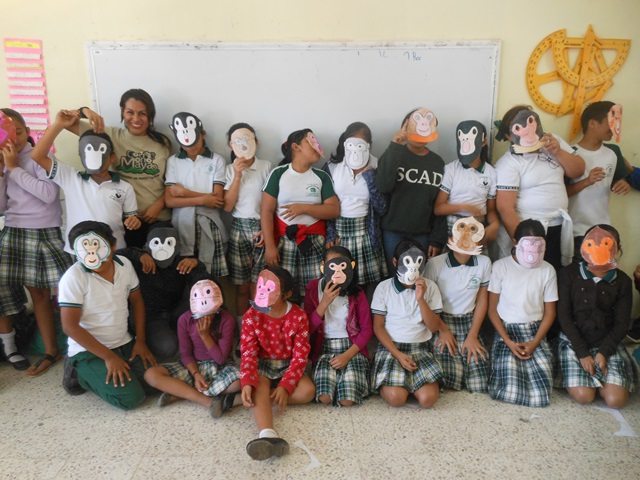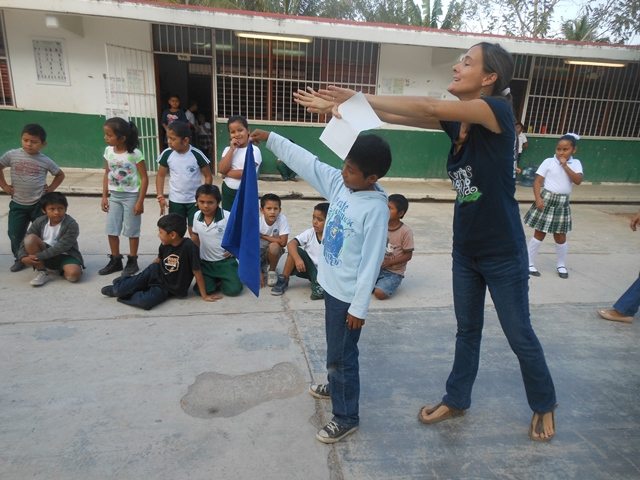In 2000, Luisa Rebecchini decided to do her MSc Biology thesis on spider monkeys. Having no experience with the species, Luisa contacted spider monkey expert Dr Filippo Aureli who advised her to spend two months at Chester Zoo during the summer.
Dr Nick Davis, Assistant Curator of Mammals at Chester Zoo explains:

We have a long history of looking after spider monkeys at Chester Zoo. They have an interesting social system more similar to chimpanzees than other monkeys, making them an interesting species to study. A number of students have observed the group at Chester Zoo to learn to recognise typical spider monkey behaviours before going out to their habitat to study them in the wild.
Chester Zoo helped Luisa improve her behavioural knowledge of the species and trained her to record behavioural data. She then headed to Mexico to complete her field work in a little Mayan village during six month. Luisa was soon to discover that this first trip to Mexico was far from being her last! Luisa tells us:
“I had never worked in the field before so I didn’t know how to collect behavioural data! During my time at Chester Zoo, I was going to the zoo every day to look at the spider monkeys. The time at Chester Zoo was really helpful because I then went immediately in the wild so at least I knew the basics.
“When I finished my Masters I went back to Mexico but this time working with Filippo as a volunteer. I was collecting data on spider monkeys for a Chester Zoo supported project looking at differences in behaviour between populations in Mexico and Costa Rica.”

Later on, Luisa applied to a PhD with the University of Chester to keep studying this fascinating species. This time her research focused on the way spider monkeys manage conflicts.
“We wanted to find out whether or not spider monkeys reconcile after a conflict. I didn’t find evidence of this but I found that the monkeys actually split after a conflict. By splitting, they avoid an escalation in the conflict.”
After finishing her PhD, the Italian researcher realised that she wanted to do something slightly different for the conservation of the spider monkeys. She moved away from research and started working on raising environmental awareness within Mexican communities.
“There is very little awareness about anything that is concerned with the environment in Mexico and this clearly affects spider monkeys among many other species. Working with the Mexican NGO ConMonoMaya, I began giving talks in schools and other institutions about spider monkeys and their environment. I quickly noticed that local people often didn’t know that these monkeys lived around their villages.

“After a while I realised that it would be good to broaden my talks. It’s very easy to get kids enthusiastic about monkeys but at the end it’s not only about the monkeys. The more involved you get in environmental issues the more effective you can be at conserving those animals!
“The new set of talks developed by ConMonoMaya highlights the main threats facing spider monkeys in Mexico. Those threats include mainly habitat loss but also animals being captured to be kept as pets. The talks now also mention issues such as climate change, pollution and animal wellbeing. The idea is that the students can see how everything is connected and can also see the value of the natural resources that surround them.”
Supported by Chester Zoo, this Project of Environmental Education extended in January the number of talks it gives to each school. Instead of coming only once, the team now visits the schools once a week for 10 weeks.
Scott Wilson, Head of Field Programmes at Chester Zoo, tells us more:
“Chester Zoo has supported spider monkey research in Latin America for many years. One of the outcomes has been to identify the need for more awareness of conservation and environmental issues amongst local communities. The activities of ConMonoMaya address this need and expand our conservation support for this threatened primate.”
Luisa concludes:
“Repeated visits allow the team to pass on more information but also allow them to build rapport with the students. You build a relationship with the kids and you notice who is really interested. We want to build something that digs a bit deeper so that we can really change students’ way of thinking.”